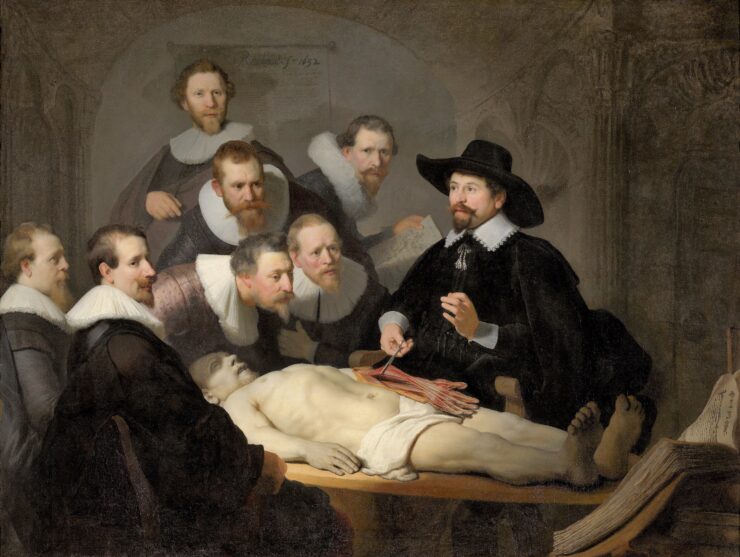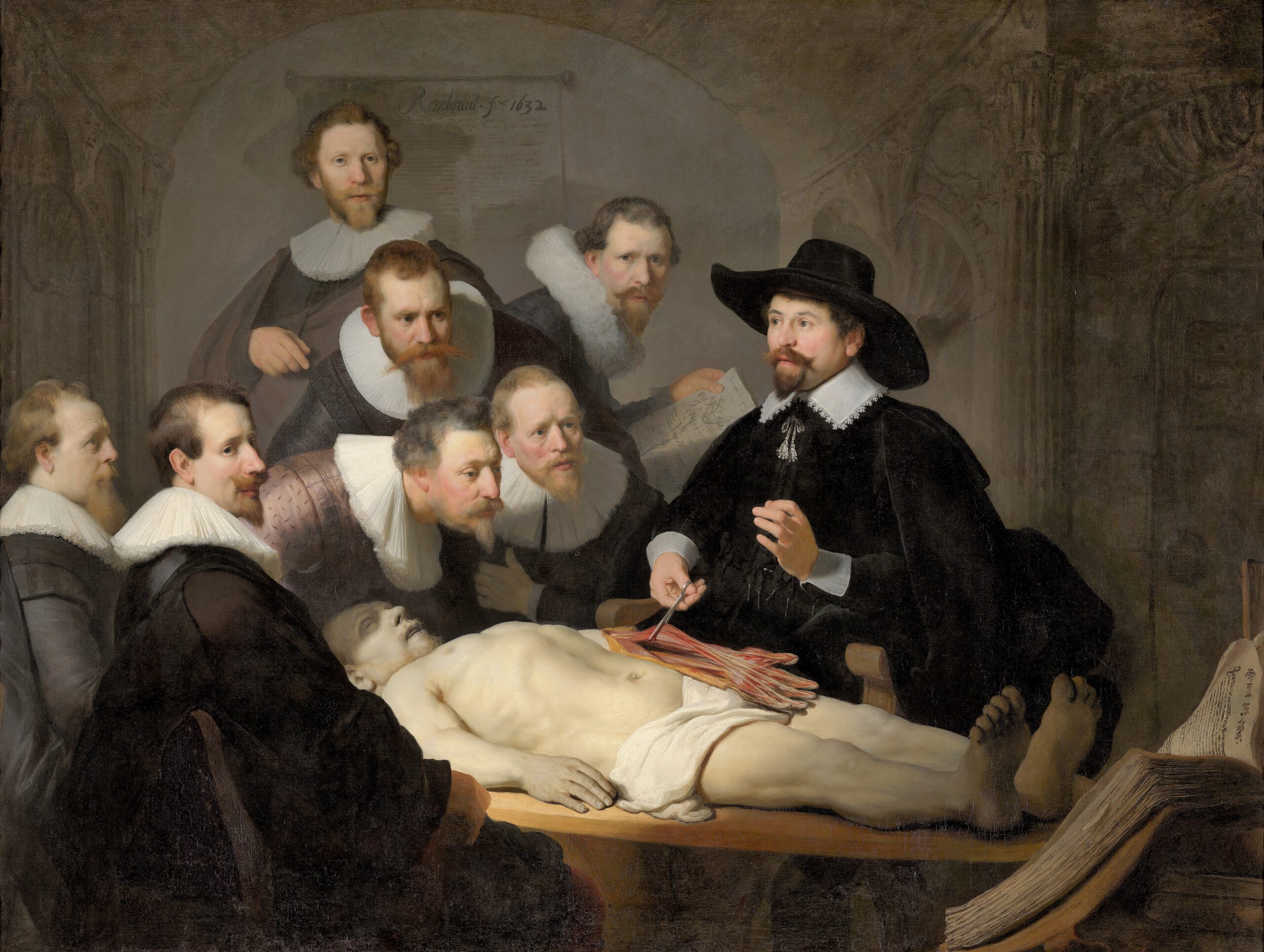Documentation
”General Practice, Critical Concerns“ – Jhor van der Horst

The Anatomy Lesson of Dr. Nicolaes Tulp (1632). Oil on canvas, 216.5 × 169.5 cm (85.2 × 66.7 in). Mauritshuis, The Hague
General practice-based research, practice-led research, research creation, creative practice as research, arts-based research, and artistic research together form a cluster of practice-based research paradigms in the humanities. Mick Wilson started his lecture-cum-workshop “How to Know Things with Works: On Practical Enquiry” by naming these various genealogically distinct practices. Yet, in his short lecture, Wilson’s recommendation was unequivocal: practice-based research in the humanities ought to learn from the sciences. What may such learning entail?
As Wilson made the case for practical inquiry, he referenced general medicine. How have medical practitioners variously contributed to advances in medical science by attending to the needs of their patients? This line of inquiry was prevalent throughout Wilson’s workshop. He asked participants to discuss various artistic projects so as to “identify the specific relations and modes of care at stake” and “consider the specific agencies of the practices and materials within each process of enquiry.”
Wilson’s care-oriented workshop was fitting for Transmission in Motion’s theme, “Matters of Care.” Moreover, the workshop was well facilitated, thought provoking, and seemed to be happily embraced by participants. Yet, did the workshop further Wilson’s argument that the humanities ought to learn from the sciences for practice-based research paradigms? In my opinion, the workshop, in all its brevity, fell short of this aim by sidelining many ‘practical’ conditions of practical research. How are funding agendas set? How do research projects support job security for researchers? How are relations between the academy, researchers, and stakeholders navigated? How can academic programs facilitate functional autonomy? While Wilson negotiated intricate social imaginaries of postcolonial theories with great ease—as was apparent both in the workshop and in his writing—he may have left aside conversations about institutional organizing within capitalist systems and entanglements of state power and pedagogy.
While considerations of capitalism and state power on artistic research can be found throughout Wilson’s writing (Wilson 2005; Wilson and O’Neill 2010; Wilson and van Ruiten 2013; O’Neill and Wilson 2010), its relative absence from the workshop limited the ways in which care could be used as a concept with critical potential. Moreover, it limited the ways in which we could discuss how practice-based research can learn from the sciences. After all, basic science is by and large reliant on state funding and applied science heavily relies on industry partnerships. Wilson’s workshop gave much to consider in appealing for artistic researchers to trust in their knowledge practices and reject monographs as the principal product of humanities research. However, I would like to see it gain a second session in which the praxis of practice-based research could be considered. Or, perhaps I am simply reluctant to transition away from the highly applied writing of the Stolker Report which provided wonderfully concrete discussions during the previous Transmission in Motion session (Stolker, Stolker, and Waaldijk 2023).
References
O’Neill, Paul, and Mick Wilson, eds. 2010. Curating and the Educational Turn. London, UK // Amstedam, NL: Open Editions // De Appel Arts Center.
Rijn, Rembrandt van. The Anatomy Lesson of Dr Nicolaes Tulp. 1632. Painting, height: 169.5 cm (66.7 in) ; width: 216.5 cm (85.2 in). Mauritshuis.
Stolker, Janka, Carel Stolker, and Berteke Waaldijk. 2023. “Powerful and Vulnerable: Academic Freedom in Practice.” Amsterdam, NL: University of Amsterdam.
Wilson, Mick. 2005. “Terms of Art and Tricks of Trade.” Third Text 19 (5): 535–43. https://doi.org/10.1080/09528820500232470.
Wilson, Mick, and Paul O’Neill. 2010. “Curatorial Counter-Rhetorics and the Educational Turn.” Journal of Visual Art Practice 9 (2): 177–93. https://doi.org/10.1386/jvap.9.2.177_1.
Wilson, Mick, and Schelte van Ruiten, eds. 2013. SHARE: Handbook for Artistic Research Education. Amsterdam, NL: ELIA.

